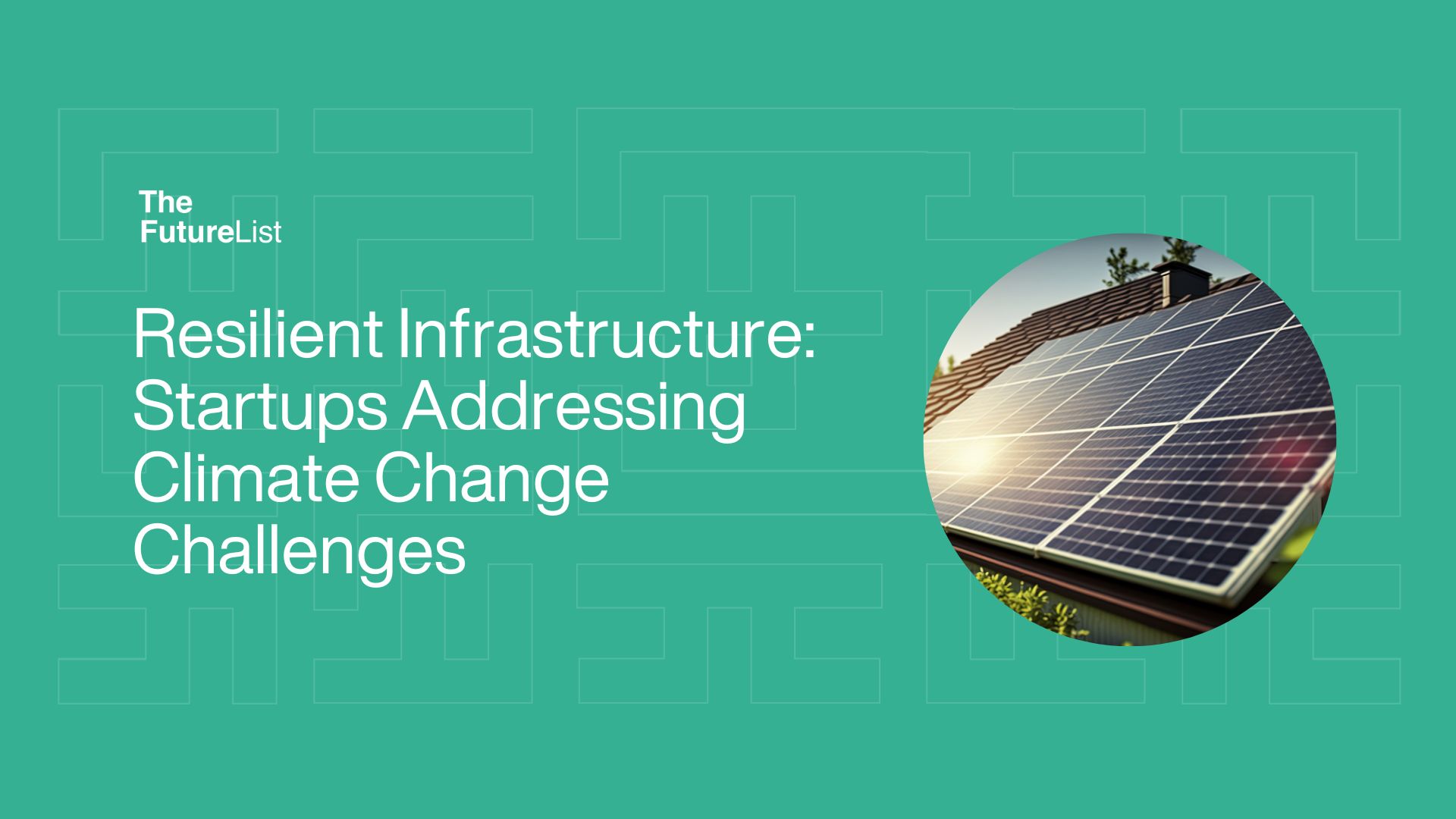
Resilient Infrastructure: Startups Addressing Climate Change Challenges
Infrastructure entrepreneurs are addressing climate change by changing multiple sectors through the use of modern technologies and sustainable practices. These firms are leading the way in reducing carbon emissions, from smart grid systems that optimise energy distribution to renewable energy alternatives like solar and wind power. Furthermore, there is a decrease in dependency on fossil fuels thanks to improvements in transportation infrastructure, such as networks for charging electric vehicles and effective public transportation. Moreover, efforts centred around sustainable building materials and methods are reducing the ecological footprint of urban growth. Infrastructure entrepreneurs are making a significant contribution to reducing climate change and promoting a more sustainable future by fusing creativity with ethical business practices.
Approximately 10% of the global market for environmental technology platforms is presently accounted for by the climate tech industry. The industry is expected to expand steadily because of the growing number of global problems, including pollution, resource depletion, and climate change. The climate-tech market was valued at over USD 12.5 billion in 2021, and between 2022 and 2028, it is anticipated to expand at a compound annual growth rate of over 24%. According to FMI’s projections, this market is expected to have significant growth in the upcoming years.
This week, we spotlight four companies that are driving innovation in the sector:
Enode:
Enode is a Norwegian company that provides a platform for developers to connect to and control over 800 energy devices, including EVs, solar panels, home batteries, and thermostats, through a single API integration. By leveraging Enode’s APIs, developers can easily surface data from these devices, optimise energy use with out-of-the-box algorithms, and participate in flexibility markets to create new sustainable energy revenue streams.
Zauben:
Zauben is a U.S based company specialising in innovative building materials and systems for sustainable construction practices. Their products include the Model Z, touted as the smart living wall, green roof panels, living wall systems, and smart plants designed to blend the workplace with nature. Zauben’s focus on nature-based climate solutions is evident in their commitment to advancing research in energy savings, decarbonisation, heat mitigation, biodiversity, and stormwater management.
Mighty Buildings:
Mighty Buildings is a U.S based company specialising in the construction of sustainable and innovative homes using advanced technologies such as 3D printing, robotics, and material science. Their Mighty Kit System allows for the customisation and rapid assembly of pre-built 3D printed panels, significantly reducing construction times and waste generation. By utilising their patented LumusTM material, made from recycled components, Mighty Buildings creates durable walls while minimising environmental impact.
Volta Trucks:
Volta Trucks is a Swedish company that specialises in the production of electric trucks designed for sustainable urban transportation. Their flagship product, the Volta Zero, is a purpose-built 16-tonne electric truck, offering a range of up to 150-200 km and a payload capacity of up to 7 tons. With a driver-centric design focused on safety and visibility, Volta Trucks aims to revolutionise commercial vehicle operations while prioritising sustainability by accelerating the electrification of the transport sector
In conclusion, by bringing creative solutions to a variety of industries, infrastructure startups are leading the charge in the fight against climate change. These firms are making major strides toward a better future by using eco-friendly construction techniques, advancing sustainable transportation options, optimising energy distribution networks, and adopting renewable energy technologies. They are not only tackling the problems brought about by climate change but also laying the groundwork for a society that is more resilient and environmentally conscious by placing a high priority on sustainability and embracing modern technology.
Get innovation insights from The FutureList weekly. Subscribe to our newsletter here
Categories
- Agritech
- Artificial Intelligence
- Biotech
- Blockchain
- Climate Tech
- Data Infrastructure
- Edtech
- Events
- Fashion
- Fintech
- Healthtech
- Infrastructure
- Innovation Memos
- Innovation Scout Program
- Insight
- Insurtech
- Machine Learning
- Martech
- Mobility
- Procurement
- Proptech
- Ridehailing
- Ridesharing
- Space Aviation
- Supply Chain
- Talent
- Telecoms
- Venture Capital
- Wastetech
- Women In Tech
Recent Posts
- Innovation Memo: Co-founder and CEO of Tendo, Felix Manford
- Meet our Innovation Ecosystem Manager: Monica Pun
- Understanding GMOs in Agriculture: Embracing the Innovation
- Satellite-based Earth Observation for Infrastructure Monitoring: Startups in Action
- Navigating the Digital Ad Maze: A Q&A with Adbot’s Visionary Founder